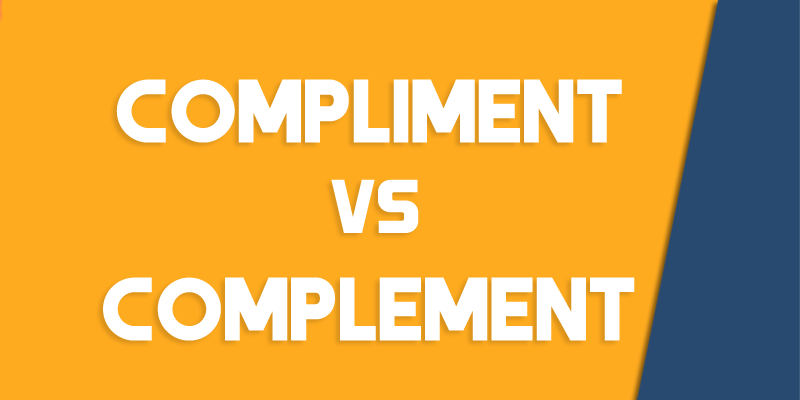Compliment vs Complement – What’s the Gist?

Compliment and complement are homophones, so they are pronounced the same, but have different spellings and meanings.
- A compliment is something nice you say to or about someone.
-
- Sam paid Mary a lovely compliment about her sweater.
- A complement is something that enhances something else or makes it better.
-
- The red wine was a lovely complement to the gourmet dinner.
Both words can be used as either a noun or a verb.
How to Use Compliment in a Sentence
Compliment definition: As a noun, compliment is a nice thing you say to or about someone.
For example,
- Mark gave a sue a compliment on her new haircut, and it made her blush. (noun)
As a verb, compliment means to praise someone or show admiration.
- One way to make someone’s day is to compliment them. (verb)
- The chicken dish and the wine complement one another nicely. (verb)
How to Use Complement in a Sentence
Complement definition: As a noun, complement refers to something that enhances, improves or makes something else better.
For example,
- The sound of the trumpet was a beautiful complement to the orchestra. (noun)
As a verb, it refers to something that is enhancing or improving something else.
- The blue shirt Noel was wearing really complemented her eyes. (verb)
- Virginia always tried to get along well with her co-workers, so she decided to compliment Mary on her new sweater. (verb)
Compliment, generally speaking, is the more common word—being used more in writing and in in everyday speech. Complement is not as commonly used, and is therefore less likely to be part of a person’s standard vocabulary.
Phrases That Use Compliment and Complement
There are a number of phrases that use these words.
A backhanded compliment: This is when someone insults you, but they disguise it as praise.
- It was a backhanded compliment when she congratulated me for being on time today.
To fish for compliments: This is when someone is saying things in order to get others to compliment them.
- Given the fancy dress she was wearing, the lady was obviously fishing for compliments.
To return a compliment: This refers to the practice of complimenting someone who has complimented you.
- The guest speaker told me how much he enjoyed reading my books, and I returned the compliment.
To pay someone a compliment: This means that you have directed a compliment at someone in particular.
- It is important when on a first date, to pay your companion a compliment.
Complimentary Items: These are items that are given at no charge.
- The hotel will often supply guests with complimentary items, such as shampoo and soap.
How to Remember These Words
As with most words in English, you have to carefully consider the other words in the sentence to know which word to use. Using context clues will help you determine which word is correct.
Essentially, the only difference in spelling is that one has an ‘i’ after the ‘l’, and the other has an ‘e’ after the ‘l’. An easy way to remember the different definitions of the words, is to remember that “I” would rather receive a compliment, than to be a complement to something. Since a compliment is something nice, and I would like to get a compliment, remember the I belongs to compliment.
Article Summary
At first glance, there is very little difference between compliment and complement, but their meanings are very different.
- A compliment is an item of praise or kind remark.
- A complement is an item that pairs well with another item.
